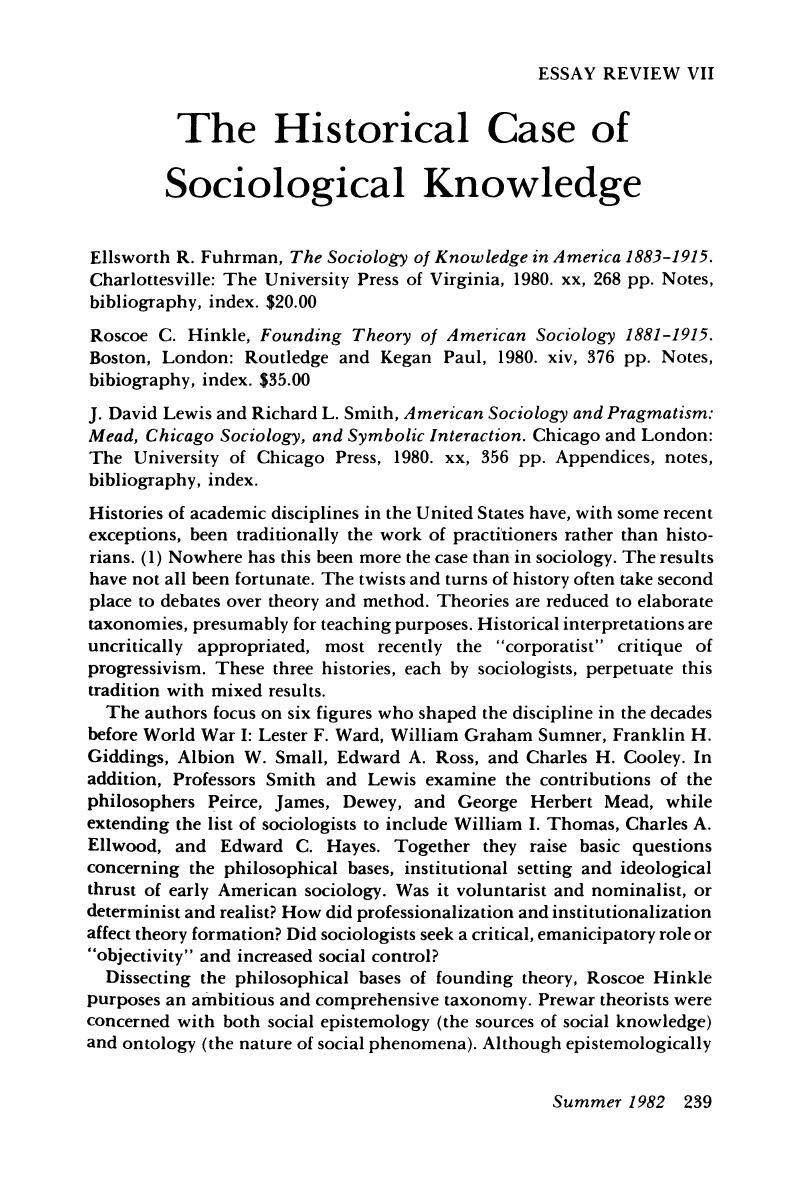No CrossRef data available.
Article contents
The Historical Case of Sociological Knowledge
Published online by Cambridge University Press: 24 February 2017
Abstract

- Type
- Essay Reviews
- Information
- Copyright
- Copyright © 1982 by History of Education Society
References
Notes
1. Recent works by historians include Furner, Mary O., Advocacy and Objectivity (Lexington, Ky., 1975); Haskell, Thomas L., The Emergence of Professional Social Science (Urbana, Ill., 1977); and Matthews, Fred H., Quest for an American Sociology: Robert E. Park and the Chicago School (Montreal, 1977).Google Scholar
2. See also Fuhrman's, review of Hinkle in Social Forces, 59 (June 1981): 1314–15. “The actual analysis of the writings of early American sociologists does not persuade me that they were primarily nominalists.”Google Scholar
3. Herman, and Schwendinger, Julia R., The Sociologists of the Chair (New York, 1974). See also Smith, Dusky Lee, “Sociology and the Rise of Corporate Capitalism,” Science and Society, 29 (1965): 401–18.Google Scholar
4. Bernard, Luther L., “Transition to an Objective Standard of Social Control,” American Journal of Sociology, 16 (1910–11); Hayes, Edward Cary, [review], ibid., 17 (1911–12): 852.CrossRefGoogle Scholar
5. See Kuklick, Henrika, “Boundary Maintenance in American Sociology,” Journal of the History of the Behavioral Sciences, 16 (1980): 201–19.Google Scholar
6. For example see Ellwood, Charles A., “Objectivism in Sociology,” American Journal of Sociology, 22 (1916): 286–305.Google Scholar
7. For an historical overview see Purcell, Edward A., The Crisis of Democratic Theory, (Lexington, Ky., 1973).Google Scholar


